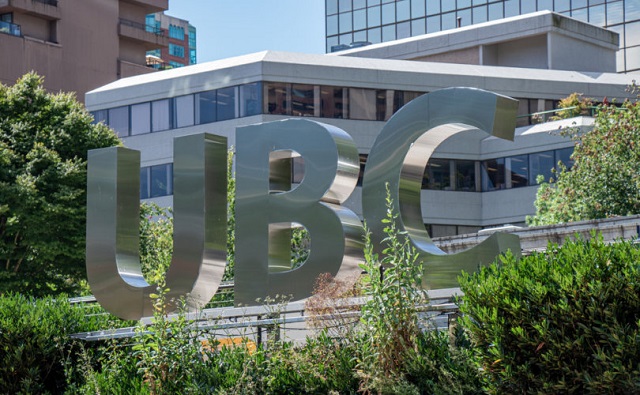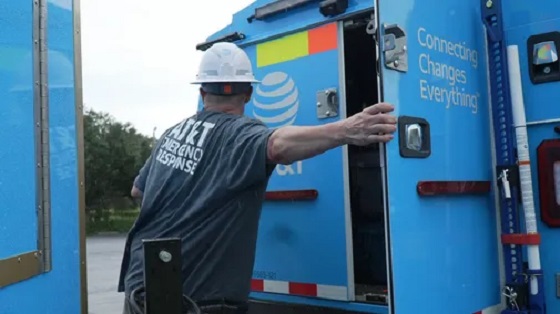DEI
Top Canadian university posts job listing that excludes white heterosexual men

From LifeSiteNews
The University of British Columbia says the new job is ‘restricted to members of the following federally designated groups: people with disabilities, indigenous people, racialized people, women, and people from minoritized gender identity groups.’
One of Canada’s most well-known universities has posted a job opening for a new research chair position but has essentially barred non-homosexual white men from applying for the job.
A recent job posting for the position of “Tier 1 Canada Research Chair in Oral Cancer Research” at the University of British Columbia (UBC) Vancouver campus has explicitly mentioned that those who don’t meet its so-called diversity, equity, and inclusion (DEI) requirements need not apply.
The UBC job posting was published on May 21, and notes that the seven-year contract for the chair role has with it certain “eligibility requirements,” such as candidates having to demonstrate a track record of “supporting equity, diversity, and inclusion.”
According to UBC, the selection for the role will be “restricted to members of the following federally designated groups: people with disabilities, indigenous people, racialized people, women, and people from minoritized gender identity groups.”
This rules out straight white men from applying for the role. UBC uses its Equity, Diversity, and Inclusion Action Plan as well as the B.C. Human Rights Code as validation for its job requirements.
The UBC claims that its current faculty is underrepresented by those who “self-identify” as having a disability, thus it notes that a person from this category is “preferential.”
To ensure that straight white men do not apply for the job, the UBC is also mandating that anyone who applies for the role must first conduct what it calls an “equity survey.”
“Candidates from these groups must self-identify as belonging to one or more of the designated equity groups to be considered for the position,” notes UBC.
According to the UBC, “Equity and diversity are essential to academic excellence.”
“We encourage applications from members of groups that have been marginalized on any grounds enumerated under the BC Human Rights Code, including sex, sexual orientation, gender identity or expression, racialization, disability, political belief, religion, marital or family status, age, and/or status as a First Nation, Metis, Inuit, or indigenous person.”
Musk: Is the even legal?
As news of the UBC job posting spread on social media, X owner Elon Musk chimed in to comment on the matter, writing on June 3, “Is this legal in Canada?” in reply to a sarcastic post from Quebec-based academic Gad Saad mocking the job posting.
“Yes! Oral cancer research has long been dominated by white heterosexual males. Imagine the progress that can be made if the relevant research were conducted by Trans People of Color. Thank you @UBC for your epistemological courage in fighting against the scourge of White Heterosexual Science,” sarcastically wrote Saad on June 3 on X.
In recent years, there has been a notable increase in the promotion of so-called DEI requirements on employers, because of a push for it from the federal government of Prime Minister Justin Trudeau.
Indeed, LifeSiteNews recently reported on how Trudeau’s Liberal government has spent over $30 million DEI affiliated contracts amongst many federal ministries since January 2019.
When it comes to DEI, Musk has been a formidable opponent to the discriminatory hiring practices. In Canada, the only main party speaking out against it is the People’s Party of Canada, under its leader Maxime Bernier. He has been outspoken against radical gender ideology repeatedly over the last few years as well as the COVID jabs and mandates.
In April, he announced a new party policy officially denouncing the so-called DEI agenda, saying it is nothing more than a “fundamentally racist, sexist, and discriminatory ideology” that “divides Canadians.”
Bernier told LifeSiteNews recently that the only way to stop the “radical policies” of the Diversity, Equity, and Inclusion (DEI) agenda – which he calls a combination of “official discrimination against white heterosexual males” and the “promotion of weird mental illnesses” – is for people to fight back against those seeking to undermine “traditional norms and values.”
DEI
AT&T ditches DE&I

AT&T’s retreat from the diversity, equity, and inclusion playbook marks one of the most significant corporate course corrections of the year — and it didn’t happen by accident. After months of pressure from FCC Chairman Brendan Carr, the telecom giant has confirmed it will unwind its DEI programs top to bottom, ending everything from race-based training modules to staff positions dedicated to enforcing ideological compliance.
The move follows years of controversy, much of it fueled by revelations that AT&T’s internal training materials pushed the notion that racism was a “uniquely white trait” and urged white employees to accept blame as part of a broader critical-race-theory framework. Those claims first surfaced in 2021 through documents obtained by researcher Christopher Rufo, who reported that the company’s curriculum told white staffers they “are the problem.” The backlash never fully subsided — and with Carr signaling that companies seeking key FCC licenses would need to demonstrate they are not running discriminatory programs, the pressure point became impossible for AT&T to ignore.
In a letter sent Monday to Carr, AT&T Senior Executive Vice President and General Counsel David McAtee said the company has overhauled its employment and business practices “to ensure compliance with all applicable laws,” emphasizing that the changes would be substantive, not cosmetic. According to AT&T, that means no hiring quotas, no supplier-contract quotas, no race-based training, and no positions devoted to policing identity-based metrics. DEI courses have been stripped from employee requirements, and the company says it will not resurrect them.
AT&T’s announcement mirrors what has become a growing trend in the corporate world as the regulatory environment shifts. In May, Verizon made a similar pledge, informing the FCC that it, too, would dissolve its DEI department and reassign staff to conventional HR roles. Carr praised that decision at the time as “a good step forward for equal opportunity, nondiscrimination, and the public interest.”
The broader message coming out of Washington is unmistakable: the days of federally regulated industries running ideological experiments under the guise of “equity” are coming to an end. Companies that want federal approval for major licenses are being told to stick to the law, treat employees equally, and drop programs that sort workers by skin color or political theory. AT&T is the latest to fall in line — and almost certainly not the last.
Agriculture
Federal cabinet calls for Canadian bank used primarily by white farmers to be more diverse

From LifeSiteNews
A finance department review suggested women, youth, Indigenous, LGBTQ, Black and racialized entrepreneurs are underserved by Farm Credit Canada.
The Cabinet of Prime Minister Mark Carney said in a note that a Canadian Crown bank mostly used by farmers is too “white” and not diverse enough in its lending to “traditionally underrepresented groups” such as LGBT minorities.
Farm Credit Canada Regina, in Saskatchewan, is used by thousands of farmers, yet federal cabinet overseers claim its loan portfolio needs greater diversity.
The finance department note, which aims to make amendments to the Farm Credit Canada Act, claims that agriculture is “predominantly older white men.”
Proposed changes to the Act mean the government will mandate “regular legislative reviews to ensure alignment with the needs of the agriculture and agri-food sector.”
“Farm operators are predominantly older white men and farm families tend to have higher average incomes compared to all Canadians,” the note reads.
“Traditionally underrepresented groups such as women, youth, Indigenous, LGBTQ, and Black and racialized entrepreneurs may particularly benefit from regular legislative reviews to better enable Farm Credit Canada to align its activities with their specific needs.”
The text includes no legal amendment, and the finance department did not say why it was brought forward or who asked for the changes.
Canadian census data shows that there are only 590,710 farmers and their families, a number that keeps going down. The average farmer is a 55-year-old male and predominantly Christian, either Catholic or from the United Church.
Data shows that 6.9 percent of farmers are immigrants, with about 3.7 percent being “from racialized groups.”
National census data from 2021 indicates that about four percent of Canadians say they are LGBT; however, those who are farmers is not stated.
Historically, most farmers in Canada are multi-generational descendants of Christian/Catholic Europeans who came to Canada in the mid to late 1800s, mainly from the United Kingdom, Ireland, Ukraine, Russia, Italy, Poland, the Netherlands, Germany, and France.
-

 Business23 hours ago
Business23 hours agoDisclosures reveal Minnesota politician’s husband’s companies surged thousands-fold amid Somali fraud crisis
-

 Alberta24 hours ago
Alberta24 hours agoThe Canadian Energy Centre’s biggest stories of 2025
-

 Business1 day ago
Business1 day agoCanada needs serious tax cuts in 2026
-

 Business2 days ago
Business2 days agoDOOR TO DOOR: Feds descend on Minneapolis day cares tied to massive fraud
-

 Business23 hours ago
Business23 hours agoResurfaced Video Shows How Somali Scammers Used Day Care Centers To Scam State
-

 Bruce Dowbiggin2 days ago
Bruce Dowbiggin2 days agoIn Contentious Canada Reality Is Still Six Degrees Of Hockey
-

 Business1 day ago
Business1 day agoMinneapolis day care filmed empty suddenly fills with kids
-

 Business2 days ago
Business2 days agoFeds pull the plug on small business grants to Minnesota after massive fraud reports



